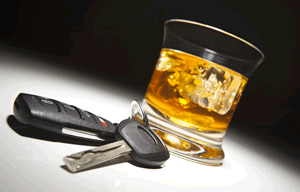How soon can I file Chapter 13 Bankruptcy after filing Chapter 7 Bankruptcy?
Debtors often ask if there are restrictions on the number of times they can file bankruptcy or if they can file Chapter 13 if they have previously filed Chapter 7 bankruptcy. While there are no restrictions on the number of times you can file bankruptcy, if you had your debts discharged in a previous bankruptcy, whether or not you can receive a second discharge, will depend on the type of bankruptcy you previously filed, whether your bankruptcy was dismissed, discharged or dismissed with prejudice, and how long it has been since you filed your previous bankruptcy case.
Filing Chapter 13 after a Chapter 7 bankruptcy
Some debtors continue to struggle with debt obligations even after they have had their unsecured debts discharged under Chapter 7 bankruptcy. If you are considering filing Chapter 13 but you have already received a Chapter 7 bankruptcy discharge there are three restrictions.
First, you will not be allowed to file a Chapter 13 bankruptcy case following a Chapter 7 bankruptcy if you have had a case dismissed within the last 180 days due to your willful failure to appear in court or comply with court orders.
Next, you will not be able to receive a Chapter 13 bankruptcy discharge within four years from the date you received your Chapter 7 discharge.
Finally, if your debts are too high after your Chapter 7 bankruptcy you cannot file Chapter 13 bankruptcy. For example, if you still have more than $360,000 in unsecured debts or $1 million in secured debts, you cannot file Chapter 13 bankruptcy. Talk to a bankruptcy lawyer if you are considering filing Chapter 13 bankruptcy following a Chapter 7 bankruptcy.
What does dismissed with prejudice mean?
As mentioned above, not only will you have to wait at least four years from the date of a previous Chapter 7 bankruptcy discharge to file Chapter 13, you can also be prohibited from filing bankruptcy again if the court dismisses your previous bankruptcy with prejudice.
Common reasons your case could be dismissed with prejudice includes what the bankruptcy court calls "bad faith" bankruptcy filings. Bad faith can include filing multiple cases to delay creditors from collecting debts owed, willfully failing to obey court orders, or abusing the bankruptcy system. The court may also decide to prohibit you from filing another case if they have determined you have hidden assets, and/or lied on your bankruptcy petition or schedules.
To determine if you have filed a bankruptcy case in bad faith, the court will review a variety of factors. For instance, the court will review the number of prior bankruptcy filings and dismissals, whether you have complied with all court rules and procedures after filing the bankruptcy case, whether you have purchased expensive luxury items right before filing bankruptcy, and if there has been other egregious conduct.
Consider also, bankruptcy should be the last resort. There are severe consequences for filing bankruptcy, and if you have to file bankruptcy multiple times it may be time to talk to a financial planner.
Related Pages
Latest Question
Will my DUI case be dropped if the officer forgets to read Miranda Rights?
Understanding what can happen with your DUI case if the police officer forgets to read you the Miranda Rights
Category: DUI and DWI


